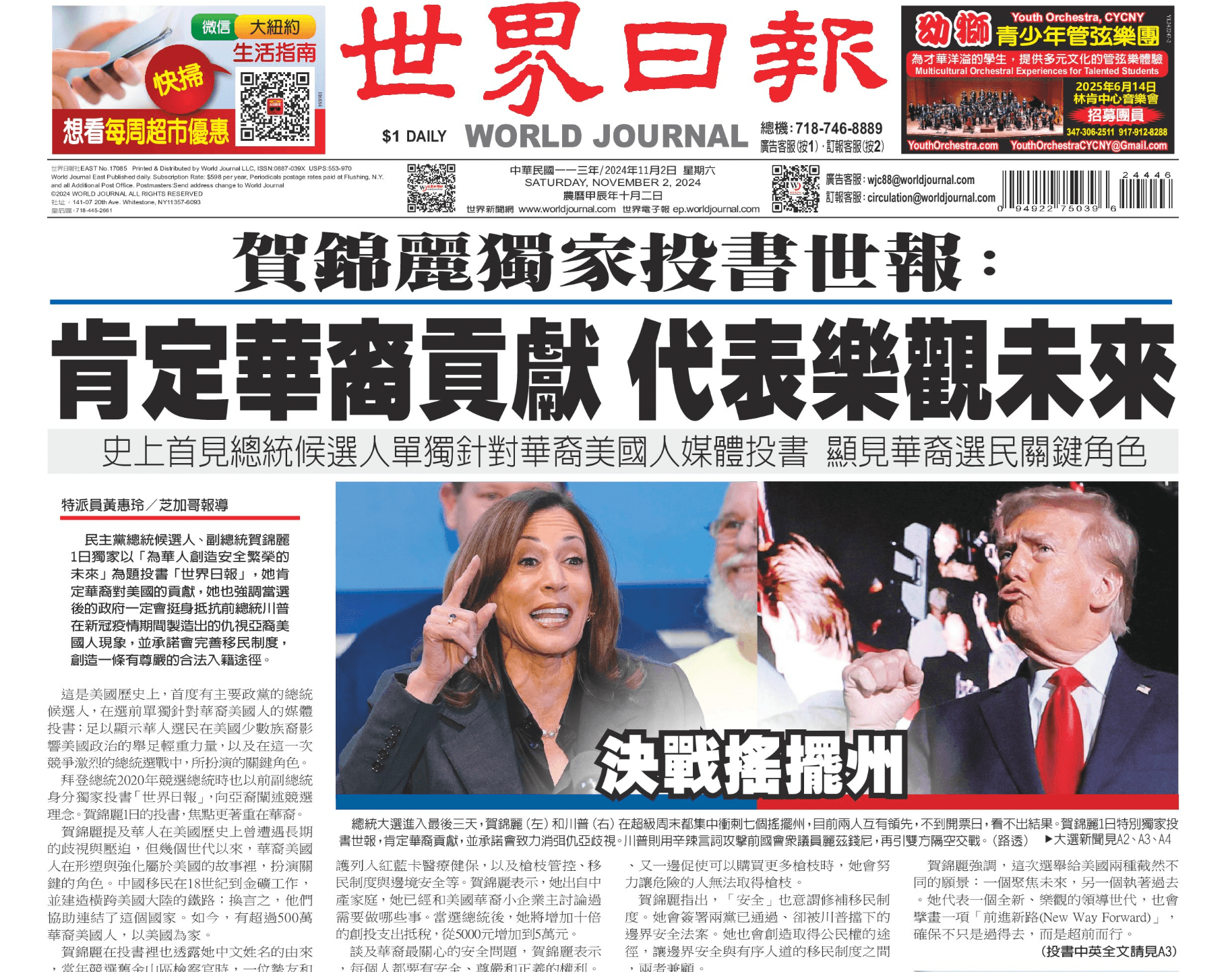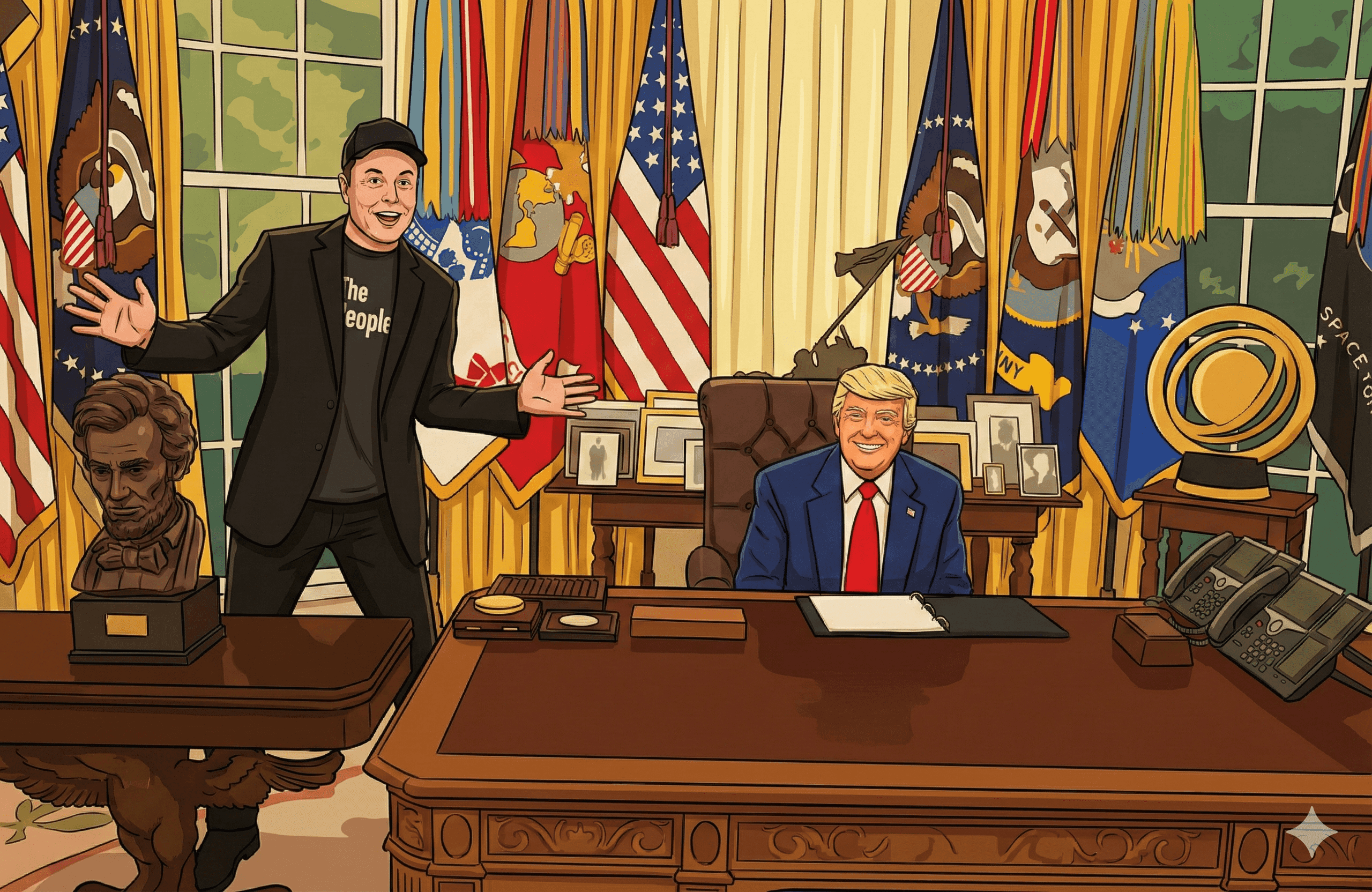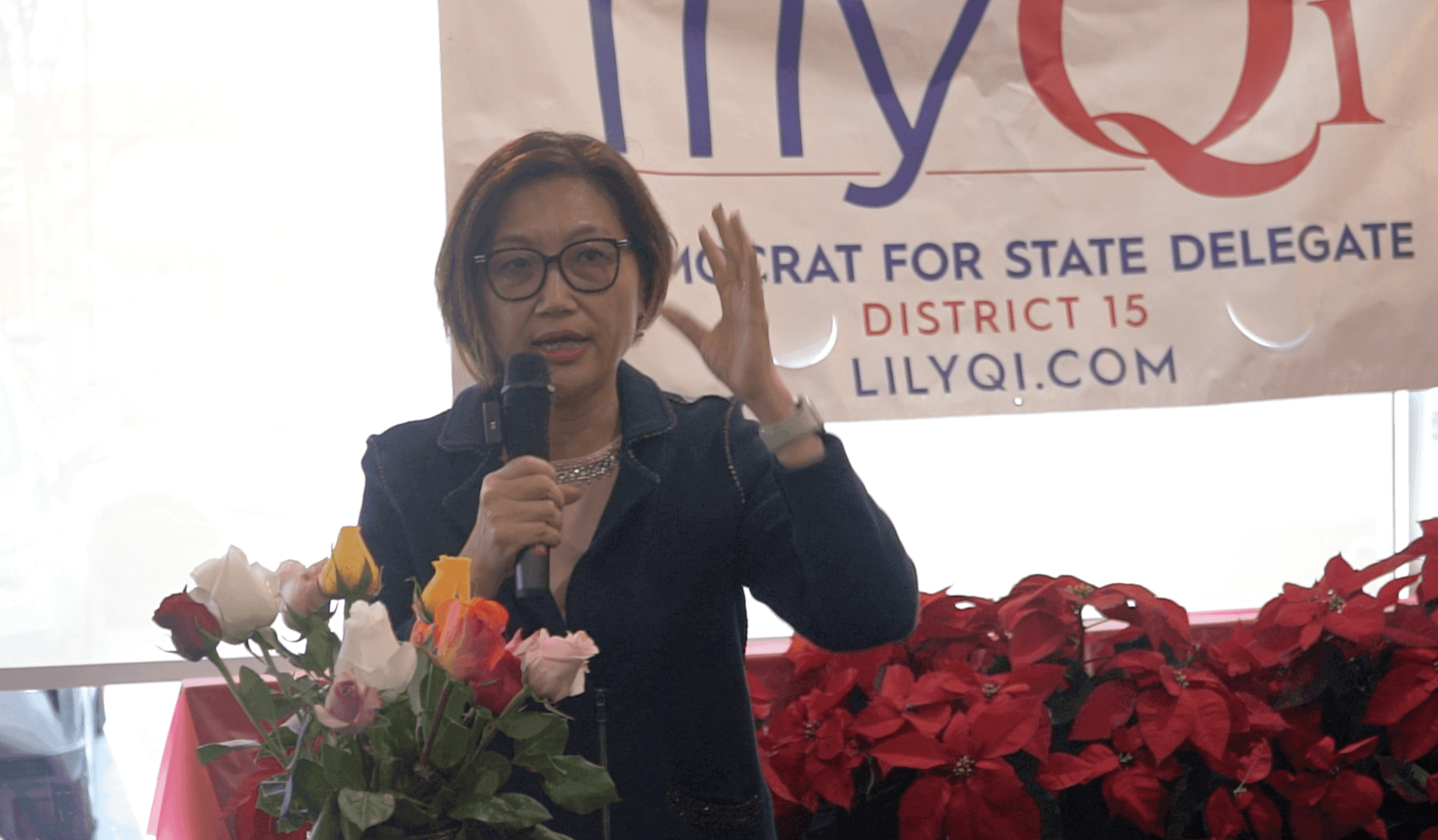Kamala Harris Published An Article in Chinese-Language Newspaper to Win Support from Chinese American Community

WASHINGTON - With just four days until Election Day, Democratic presidential nominee Vice President Kamala Harris published an article in the World Journal titled “Creating a Safe and Prosperous Future for Chinese Americans.” The World Journal is a widely circulated Chinese-language newspaper in the United States. Harris’ article aimed to win support from the Chinese American community, which comprises over five million people in the U.S.
In her article, Harris emphasized the contributions of Chinese Americans, which date back to the 1800s. She acknowledged the racial discrimination and xenophobia they face and showed her support by recalling the Year of the Dragon celebration she hosted at her home, along with sharing her Chinese name “贺锦丽” given to her by a close friend and her father. Harris recounted her mother’s immigration story, reflecting her deep understanding of Asian immigrant communities. After outlining her policy agendas in economics, healthcare, and crime prevention, Harris criticized Republican presidential nominee Donald Trump's anti-Chinese rhetoric, calling it a threat to the Constitution and to freedom.
“I humbly ask for your vote, because if I have the privilege of serving as your President, I know that together we can turn the page on this divisive era of our politics and start writing the next great chapter in the most extraordinary story ever told. Together, we can create a stronger, safer, and more prosperous future,” wrote Harris, at the end of the article.
World Journal published the Chinese translation of this article on its front page and posted its original English version on its website.

The frontcover of today's World Journal, a widely circulated Chinese-language newspaper in the United States.
Harris is not the first Democratic presidential nominee to publish an article in the World Journal. In 2020, President Joe Biden did the same, but his outreach targeted Asian American voters as a whole, rather than specifically focusing on Chinese voters. Harris, however, is the first presidential nominee to write directly to Chinese Americans in a Chinese-language newspaper, according to Huiling Huang, Correspondent of World Journal in Chicago.
World Journal is one of the largest Chinese-language newspapers outside of Greater China, with a daily circulation of 350,000. It is particularly popular among the aging Chinese American community. The newspaper is headquartered in the Whitestone neighborhood of Queens in New York City, which has one of the largest Chinese populations in the U.S.
Harris’ article lifted the spirits of her supporters in the Chinese American community, especially those who have been passionately campaigning for her since July.
As soon as Harris was nominated as the Democratic presidential nominee, some Chinese Americans launched a grassroots campaign “Chinese Americans for Harris”. Despite lacking support from her campaign headquarters, they canvassed, phone banked, sent text messages, and mailed handwritten postcards to Chinese voters in swing states to encourage turnout.
On WeChat, a social media app popular among the Chinese community, Chinese Americans from across the nation came together to discuss outreach strategies and share campaign information, deeply engaging in political events that are often absent from the countries they immigrated from.
Key figures in "Chinese Americans for Harris," such as Ling Luo, were formerly leaders in "Chinese Americans for Clinton" in 2016. Luo, the founder of "Chinese Americans for Harris," said that while some volunteers had differing opinions on specific Democratic policies, such as the stance on the War in Gaza, they united under the mission to combat Trump.
However, the assumption that Chinese Americans as a whole support Harris is completely false, even though 61% of them have a favorable view of her, according to a survey by AAPI DATA released in September.
Driven by disillusionment, some Chinese American voters leaned toward Trump and became equally, if not more, enthusiastic about his campaign. They were unfazed by Trump’s rhetoric regarding the Chinese community, arguing that it was aimed at Chinese citizens, not American citizens like themselves.
Sam Shi, a data analyst at Northern Virginia Community College, was among them. He said he did not feel it was inappropriate for Trump to call COVID-19 the "China virus," saying that it originated in China and that many viruses are named after their regions of origin.
Education and tax policies remain top priorities for Republican Chinese Americans like Shi when it comes to voting decisions. Many are advocating for equal opportunities in college and prestigious high school admissions while voicing concerns about the tax burden under Democratic administrations.
A group of Chinese American parents remain staunch Republicans, largely due to their disagreement with the gender education policies implemented by Democrats in public schools.
“Boys are born to be boys. Girls are born to be girls. It’s crazy that genders can be mixed and boys and girls are taught to share bathrooms,” said one Chinese parent, who preferred to remain anonymous. Her statement reflects a common sentiment among Chinese American parents, particularly those with daughters, and explains their unfavorable views toward the Democratic Party, which advocates for LGBTQ+ rights.

 Pingping Yin
Pingping Yin



